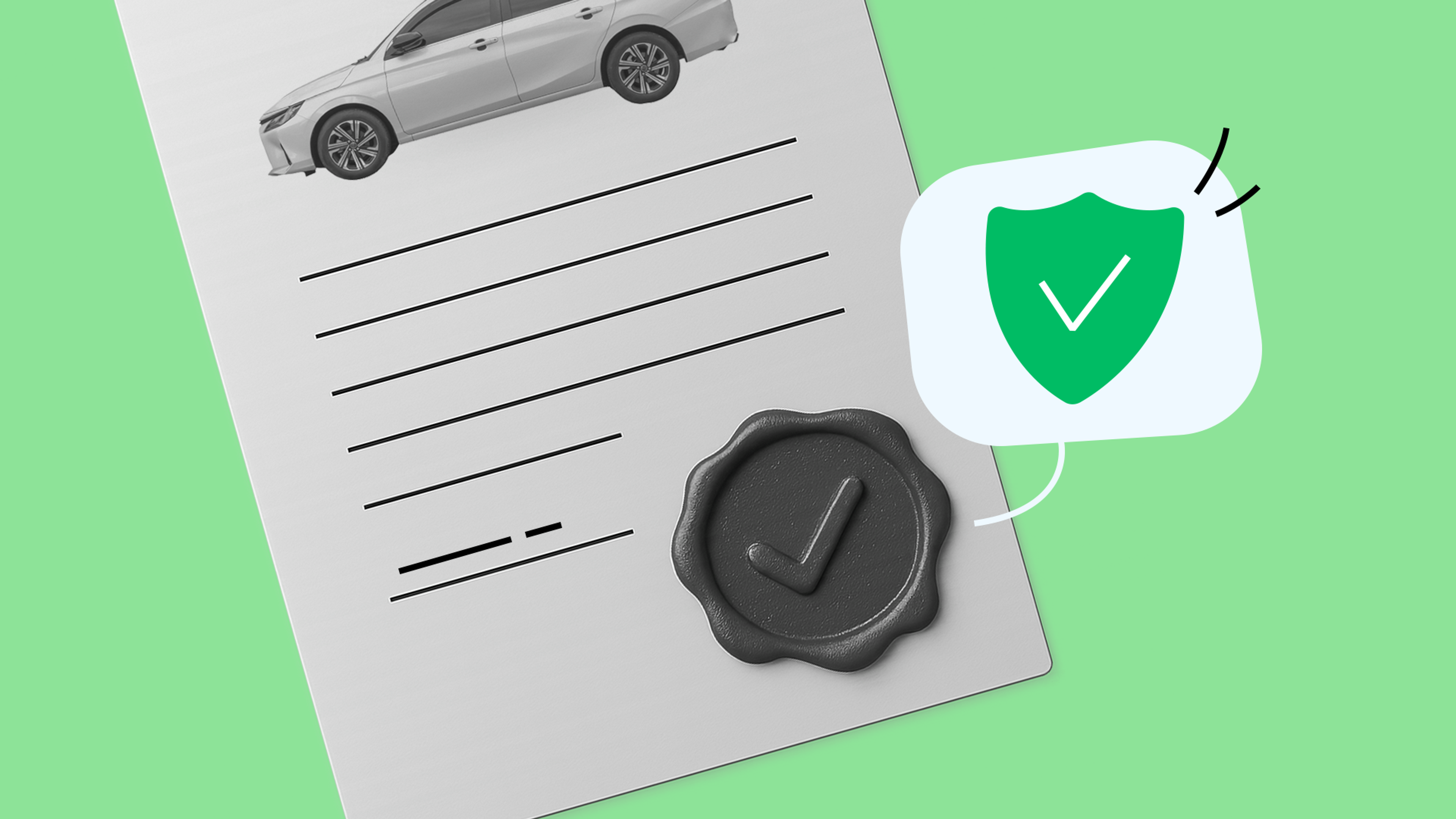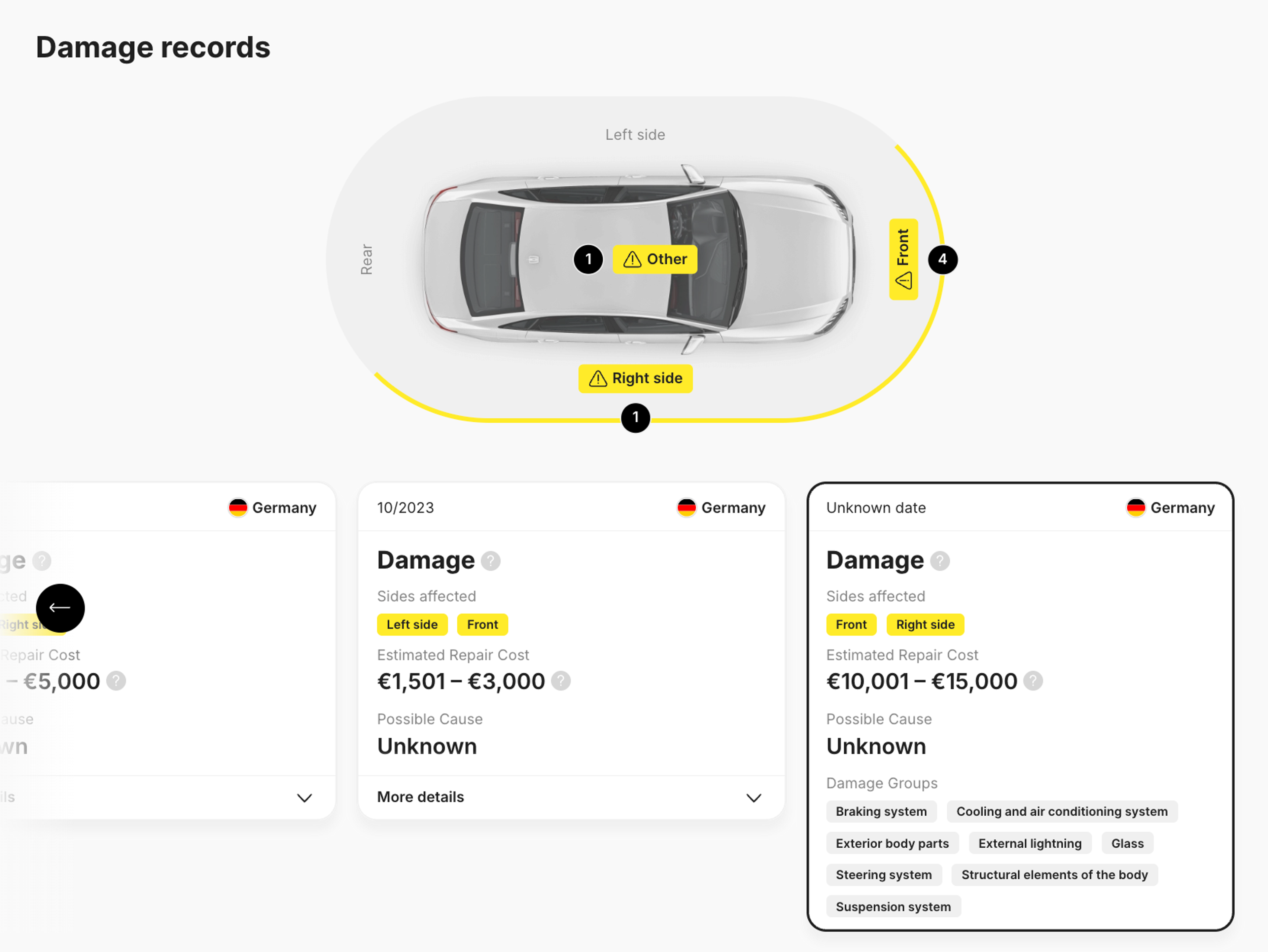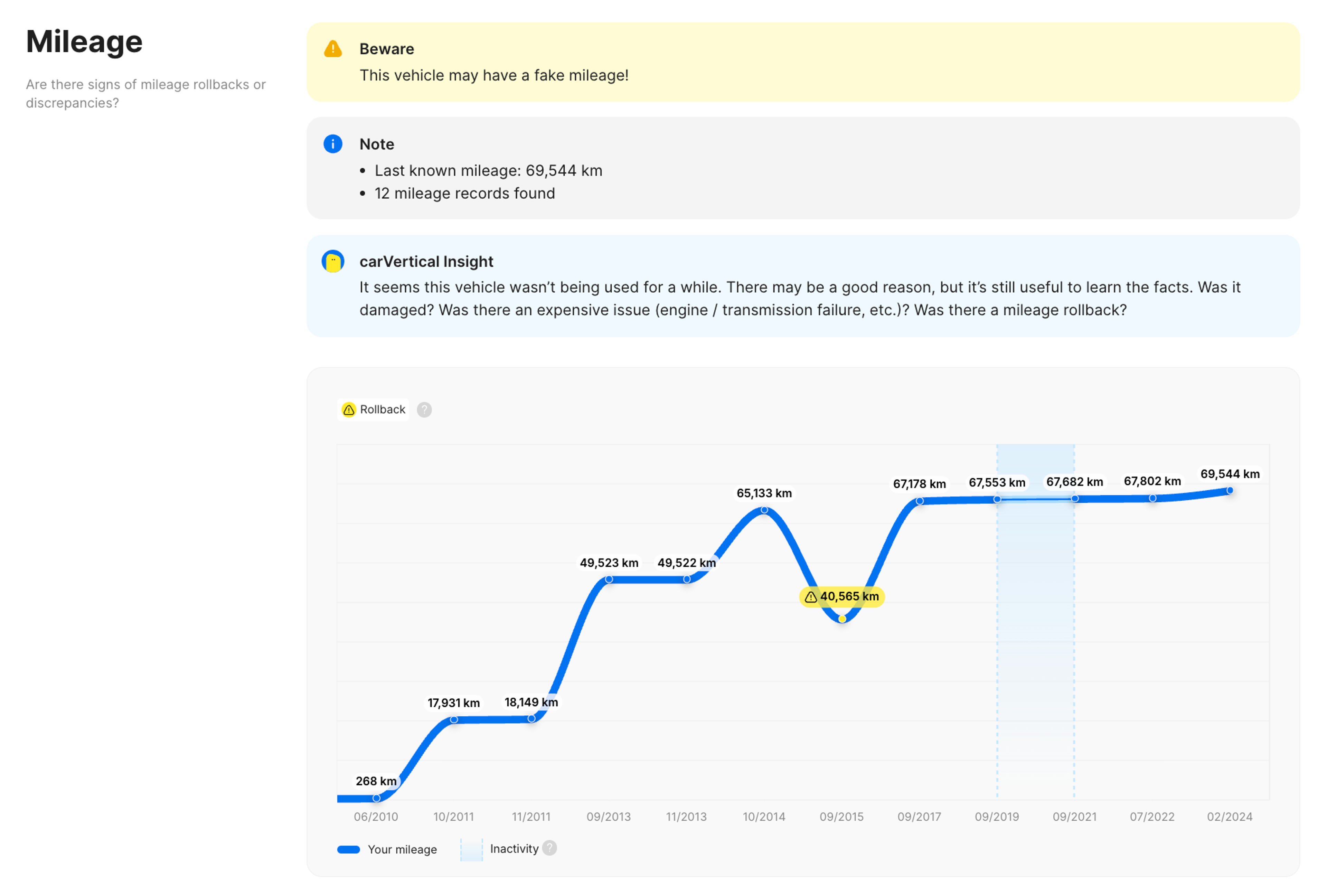11/08/2025
Used car warranty in Ireland: What’s typically covered

You’ve done the deal, and the car is finally yours. It feels brilliant. But that initial buzz can disappear fast if a warning light suddenly flashes on the dashboard. In that moment, your first thought isn’t about the great price you got; it’s about whether you’re facing a massive repair bill.
This is where your used car warranty comes in. Whether it’s an automatic legal right or a printed document, understanding your cover is the best defence against a great purchase turning into a costly problem.
This guide will walk you through everything you need to know about a used car warranty in Ireland. Think of it as your roadmap. We’ll walk you through the warranties on offer and, more importantly, the powerful legal rights you have as a buyer in Ireland. The goal is to help you spot the hidden traps that could otherwise turn a great deal sour.
Where can you buy a used car in Ireland?
The first thing to know is this: your legal rights from a used car or vehicle warranty in Ireland depend entirely on who you buy from. Getting a car from a dealer is completely different from buying it privately from an ad online, especially when it comes to getting problems sorted.
- Dealers are your typical car showrooms, service centres, or registered businesses that sell cars, often with a professional online presence. When you buy from a dealer, it’s a formal business transaction. This is great news for you, as you automatically get strong consumer rights. The law states the car must be of reasonable quality, safe, and as described by the seller.
- Private sellers are individuals selling their personal vehicles, usually through classified ads online or in local papers. Here, the rules are completely different. The principle of caveat emptor (let the buyer beware) applies, meaning you have far fewer legal protections and assume much more responsibility for checking the car's condition.
Consumer rights when buying from a dealer
When you buy a used car from an official dealer in Ireland, you're protected by powerful legislation. Your rights are built on the Sale of Goods and Supply of Services Act 1980, and have been greatly strengthened by the newer Consumer Rights Act 2022. Thanks to this foundation, it means that even if you don't sign a separate warranty document, the car automatically comes with certain guarantees.
Under the Act, any vehicle sold by a dealer must be:
- Of satisfactory quality: Taking its age and mileage into account, the car should be in a reasonable condition, safe to drive, and free from significant defects.
- Fit for purpose: It must work as a car is expected to work – getting you from A to B reliably.
- As described: This means what you're told by the dealer has to be true. So, if the ad promises working air-con, it better blow cold.
Imagine the engine light comes on just a week after your purchase. Don't panic. Your first call should be straight to the dealer. Under Irish law, they are held accountable for these kinds of underlying issues that were present at the point of sale.
It becomes their problem to solve. For minor faults, this usually means they'll carry out a repair. For more serious problems, you could be looking at a replacement car or even getting your money back.
What’s typically covered in a used car warranty
Used car warranties generally fall into two categories: the automatic legal protection you get from dealers (statutory) and the extra policies they might offer (voluntary). The level of cover you get for a second hand car warranty in Ireland depends heavily on which type you have.
Here’s a quick breakdown of the key differences:
Statutory warranty | Voluntary warranty | |
Legal basis | Provided by law (Consumer Rights Act 2022) | Offered voluntarily by dealers or third parties |
Coverage | Covers faults present at the time of sale; vehicle must meet quality and description standards | Can include wider coverage such as post-sale mechanical breakdowns and some wear-and-tear |
Duration | A "reasonable period", often interpreted as the first 6 months for faults to appear | Varies widely, often 3, 6, 12 months or longer |
Cost | Included in the car's sale price | Often an additional cost or part of a premium service package |
Typical exclusions | Normal wear and tear, accidental damage, faults you were told about before buying | Varies by provider; usually excludes misuse, lack of maintenance, modifications, and consumable parts |
Statutory warranty
So, what are your most basic consumer rights when buying a used car in Ireland? One of the biggest is the automatic legal warranty you get from any dealer. You don't have to ask for it; it's always there.
It simply means the car's condition must be fair for its age and mileage. A nearly new car is expected to be almost perfect. A ten-year-old car isn't, but it must still be safe and reasonably sound. If it isn't, the dealer is the one who has to put it right.
Voluntary warranty
A voluntary or "dealer" warranty is a commercial product, essentially an insurance policy for your car's components. This is a used car vehicle warranty offered on top of your statutory rights, often for a specific period like 3 or 6 months.
On paper, these policies look great, often promising to cover the big, expensive mechanical parts like the engine and gearbox. But there’s nearly always a catch.
To keep the warranty active, you’ll have to play by their rules. This usually means getting the car serviced on a strict schedule, and only at a garage they’ve approved. The devil is in the detail with these documents, so you have to check the exclusions list to understand what protection you’re actually getting.
Duration and cost of used car warranties
The length and price of a warranty on used cars in Ireland can vary significantly.
- Statutory warranty: Your statutory rights don’t have a strict expiry date. The law is a bit vague, saying only that a car should be durable for a "reasonable" period. As a general rule, you’re in a very strong position if a fault appears within the first six months. In that timeframe, it’s much harder for a dealer to argue that the problem wasn't already there when you bought it.
- Voluntary warranty: The length of these voluntary warranties can vary, but you’ll typically see them offered for 3, 6, or 12 months. For newer used cars, dealers often roll the price into the windscreen sticker to make the deal more attractive. If you are paying for it as a standalone extra, a year's cover could set you back anywhere from €250 to €800+. The price really just comes down to risk. A newer, low-mileage car is always cheaper to cover than an older one with more kilometres on the clock.
What a warranty won’t cover
This is where many buyers get caught out. The most important part of any warranty isn't the list of what's covered; it's the list of what isn't. Every policy has these "exclusions," and getting to grips with them up front is the only way to avoid the headache of a rejected claim later on.
Common exclusions include:
- Parts that wear out naturally. Your warranty is for unexpected mechanical failures, not routine replacements. You'll still be covering the cost of new tyres, brake pads, wipers, and other parts that are designed to wear down with driving.
- Anything purely cosmetic. A warranty won't pay for surface-level issues like scratches, small dents, or a bit of wear and tear on the seats. It's there to cover how the car works, not how it looks.
- Faults you are responsible for. This one's just common sense. If you cause a problem, whether through an accident, hitting a pothole, or general neglect, the repair bill will be yours.
Warranties also have limitations, such as:
- Time and distance limits. Most policies have a hard stop. They'll usually expire after a certain time (like 3 months) or a set number of kilometres, and the cover ends as soon as you hit either one.
- Strict servicing rules. This is a big one. You'll almost certainly have to get the car serviced exactly on schedule at a garage chosen by the warranty company. Skip a service or go somewhere else, and you could void the entire policy.
- How you use the car. Standard warranties are for personal driving only. Using your car for taxi work, as a delivery vehicle, or for any kind of motorsport will almost certainly cancel your cover instantly.
What to know when buying from a private seller
When you buy from a private seller, the safety net of consumer law is gone. Statutory rights do not apply, and you’re unlikely to be offered any form of used car warranty. The responsibility falls squarely on your shoulders to ensure the car is sound before you part with your money.
The only legal requirement for a private seller is that the car must be accurately described. But proving it wasn't can be incredibly difficult. Before you even think about handing over cash, take these precautions:
- Get a mechanical inspection: Pay a qualified mechanic or an organisation like the AA to give the car a thorough once-over.
- Ask for the service history: A complete and consistent service record is a good sign of a well-maintained vehicle.
- Run a car history check: This is non-negotiable. A history check reveals the car’s past, including details the seller might not mention.
Check the car’s history with carVertical before buying
A car history check is your best defence, especially in a private sale. It acts as a background check on the vehicle, giving you the story behind the metal.

carVertical reports can uncover critical information that a seller might conveniently forget to tell you. Has the car been in a nasty smash? The seller might not tell you, but the Damage section often will.
It uncovers any recorded accidents, showing you how bad the damage was and what the repairs may have cost. This is how you can spot and steer clear of cars with a dodgy history that could be unsafe or turn into a money pit.

The Mileage section is just as crucial. Odometer fraud is a serious problem, and a carVertical report flags rollbacks by comparing mileage entries from various sources over time. An artificially low mileage can hide years of wear and tear on the engine and other key components.
Undisclosed damage or a clocked odometer are major red flags that no warranty will cover. Using carVertical first is a simple, preventative step that can save you thousands.
What can void a used car warranty?
A warranty is a two-way street. The provider offers cover, but you have to hold up your end of the bargain. Be careful, as it's surprisingly easy to void your policy. Here are the most common mistakes that can lead to a rejected claim:
- Skipping a service. This is the number one reason claims are denied. Warranty providers insist on a perfect service history, done on time, at their approved garage. One late or missed service is often all they need to cancel your cover.
- Modifying the car. Any changes from the factory standard can void your warranty. If you remap the engine for more power or even just fit non-standard wheels, they can argue the modification caused the fault and refuse to pay out.
- Using the wrong fluids: Using the incorrect type of oil or coolant can cause damage that won't be covered.
- Failing to act on a fault: If you notice a small problem (like an oil leak) and continue to drive the car until it causes a major failure, the warranty provider may refuse the claim.
What to do if you have a problem after buying
If you discover a fault, the steps you take depend on who you bought the car from.
- From a dealer: Contact the dealer immediately, preferably in writing (email is fine). Clearly state the problem and reference your rights under the Sale of Goods Act 1980 as well as Consumer Rights Act 2022. Request a repair. If the dealer is uncooperative, you can get advice from the Competition and Consumer Protection Commission (CCPC) and, if necessary, take your case to the Small Claims Court.
- From a private seller: Your options are extremely limited. You can contact the seller, but they are under no legal obligation to help unless they deliberately misled you about the car's description (e.g., selling a car that was previously written off and claiming it wasn't). Proving this is very difficult and often not worth the legal expense.
Check your VIN
Avoid costly problems by checking a vehicle's history. Get a report instantly!
